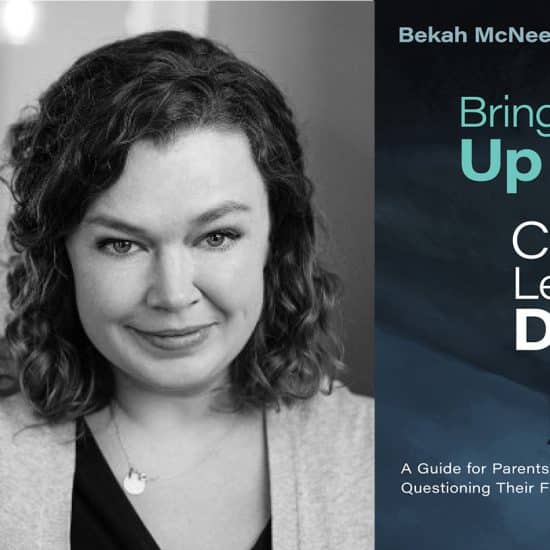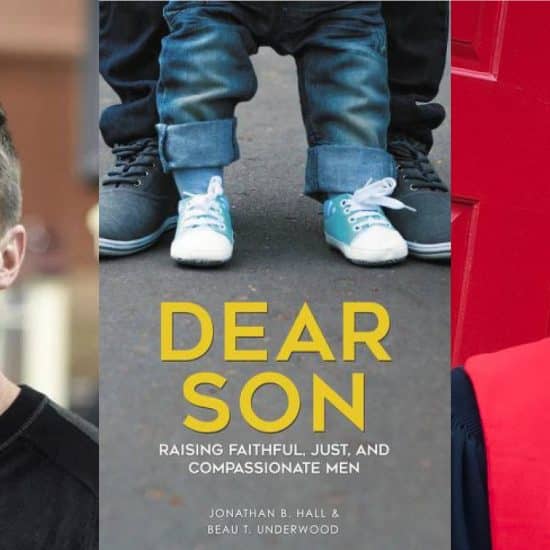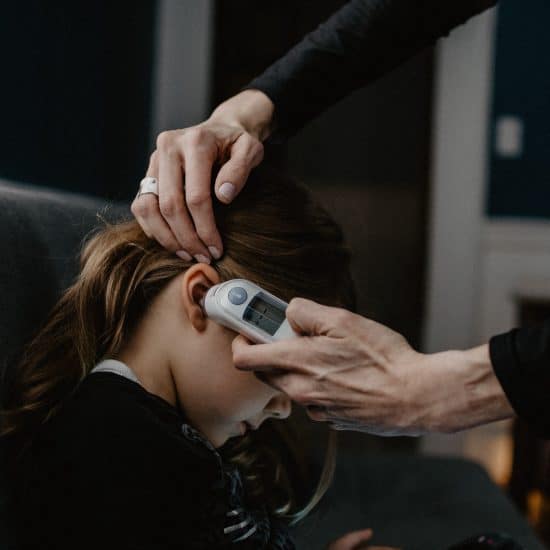Todd and Carolyn Pridemore of Columbia, Mo., do not consider themselves risk takers. But the struggle to find help for their son led them to risk emotionally, physically, financially and spiritually.
The Pridemores’ middle son, Andrew, “had always been a bit different,” Carolyn said, although she couldn’t explain why at the time. When Andrew entered school at 5 years old, a speech pathologist diagnosed two language disorders.
The couple sought answers and help from a psychiatrist who diagnosed Andrew with ADHD, auditory processing disorder, anxiety, a learning disability and autism spectrum disorder. The ADHD diagnosis was “cut and dried” and the others considered possibilities.
 Todd and Carolyn Pridemore, with sons (from left) Josh, Titus and AndrewAlthough the psychologist recommended medication to control Andrew’s behavior, the Pridemores hesitated to take that step.
Todd and Carolyn Pridemore, with sons (from left) Josh, Titus and AndrewAlthough the psychologist recommended medication to control Andrew’s behavior, the Pridemores hesitated to take that step.
The couple searched for other options. A second-grade teacher suggested they try neurofeedback, a technique that uses electroencephalography (EEG) to train the brain to change behavior. The treatment required travel to St. Louis twice each week for three months.
At first, the treatment appeared to work. But a few months later, Andrew’s anxiety level rose. He would rip out handfuls of hair and call himself a “weirdo.” He told his parents he wanted to die, Carolyn said, with tears in her eyes.
At that point, the couple feared that he might harm himself or others.
Frustration grew as every doctor and specialist who saw Andrew gave different and sometimes conflicting diagnoses. Most told the couple little could be done for their son.
The couple remembered a conversation at Carolyn’s family reunion. Her stepmother suggested they consider Brain Balance, a non-medical approach that treats neurological disorders as disconnections between the brain’s hemispheres.
Though skeptical, they took Andrew to Overland Park, Kan., the nearest center, for an assessment. The 20-page assessment report convinced the couple to take the chance that the program would work.
The report indicated that a few areas of Andrew’s brain were developed at an 11-year-old level, others at a 3- or 4-year-old level. They were still skeptical but had hope.
They were uncertain how to cover the expense and the travel time. The program required Andrew to be at the center three days each week for six months. Todd worked for the Food Bank for Central and Northeast Missouri at the time and Carolyn teaches school. Todd’s boss allowed him to go one day each week, and Carolyn’s father took Andrew the other two.
Within the first month, the family started noticing changes. Then they began getting feedback from Andrew’s teachers and others. His reading scores went up one grade level within three months, and he began making friends at school. His behavior at home improved.
“We saw God’s hand at work,” Todd said.
At one point, a pediatrician had told Carolyn that Andrew would never get married or have children. He might get a job but not one working with people.
“Now my kid is not on meds and he’s happy,” Carolyn added.
They believe God used Brain Balance to minister to their son, so much so that they sought a program franchise for mid-Missouri. A reading specialist with the Ashland, Mo., school district, “Carolyn has always had a heart for children, …especially for those with special needs,” Todd said.
The pair was initially turned down because company officials thought Columbia was too small a market. The Pridemores had asked God to close the opportunity if they were to back away from it. Within a short time, administrators changed their minds.
Several times the company imposed requirements the Pridemores felt God did not want them to do. For a while, Brain Balance insisted Carolyn should teach at the local center but she did not feel God’s leading. Each time God said no to a requirement, company officials withdrew it, she explained.
The Lord guided them to the center’s location and to staff members, who consider their work as ministry and pray for the children and families being served.
Todd and Carolyn oversee the business side of the franchise while working full-time — Carolyn in her post in Ashland and Todd with The Baptist Home.
Both see the franchise as ministry and are working on details to open another in Springfield.
While in college, Pridemore remembers God calling a lot of young men to preach. He wondered what ministry he was to do. “God said, ‘Todd, the best thing you can do with your life is help people,’” Pridemore said.
He figured out what God meant as a staffer at Memorial Baptist Church in Columbia working with widows and orphans.
“I asked myself who are the orphans and widows of today. Those with special needs came to mind,” he said.






